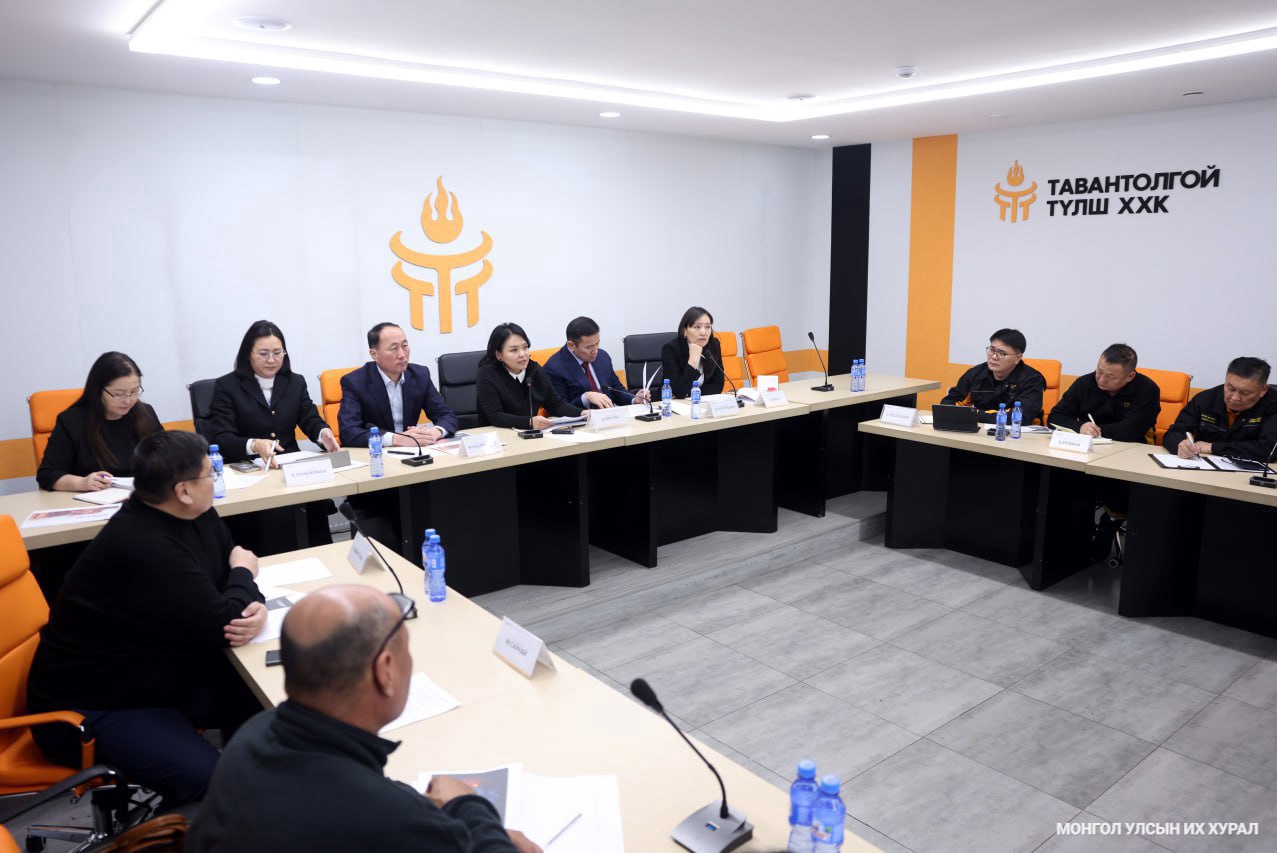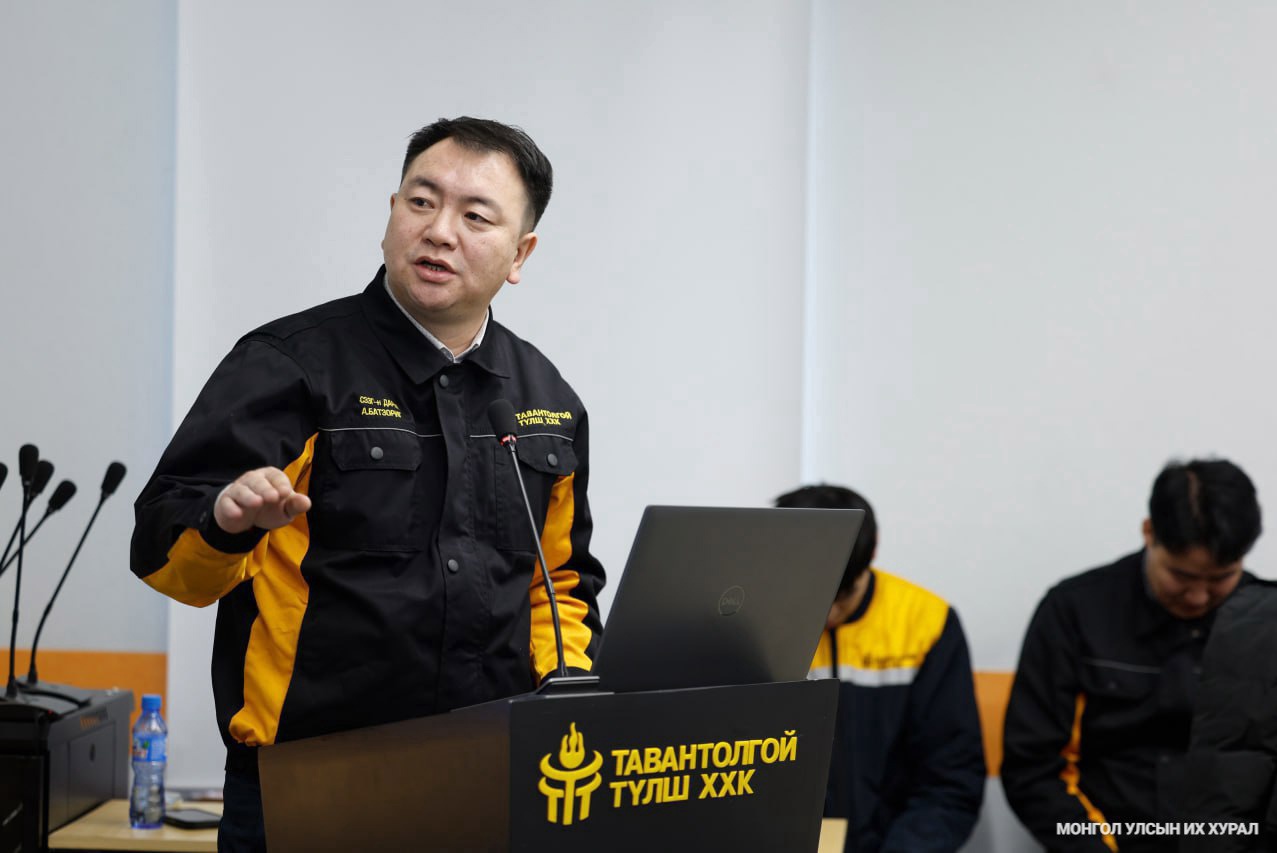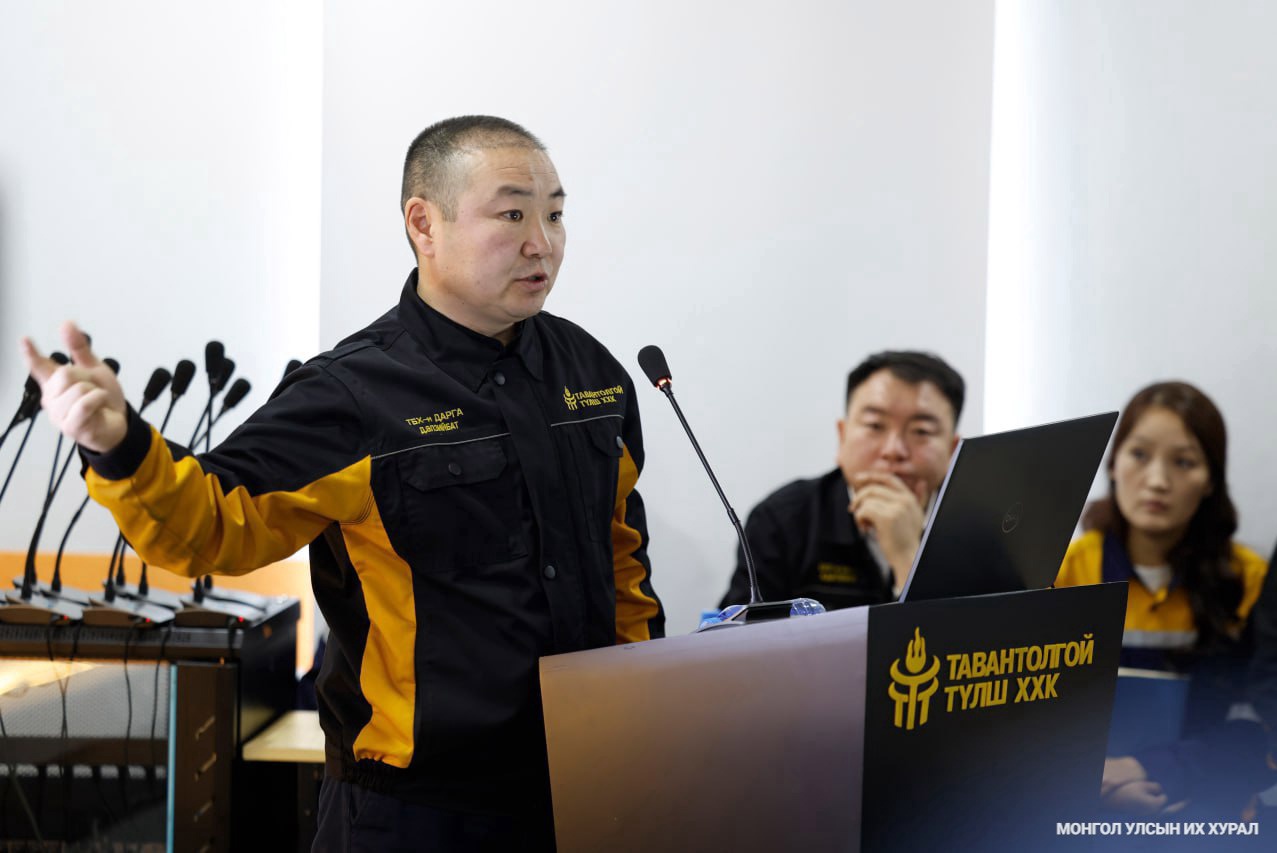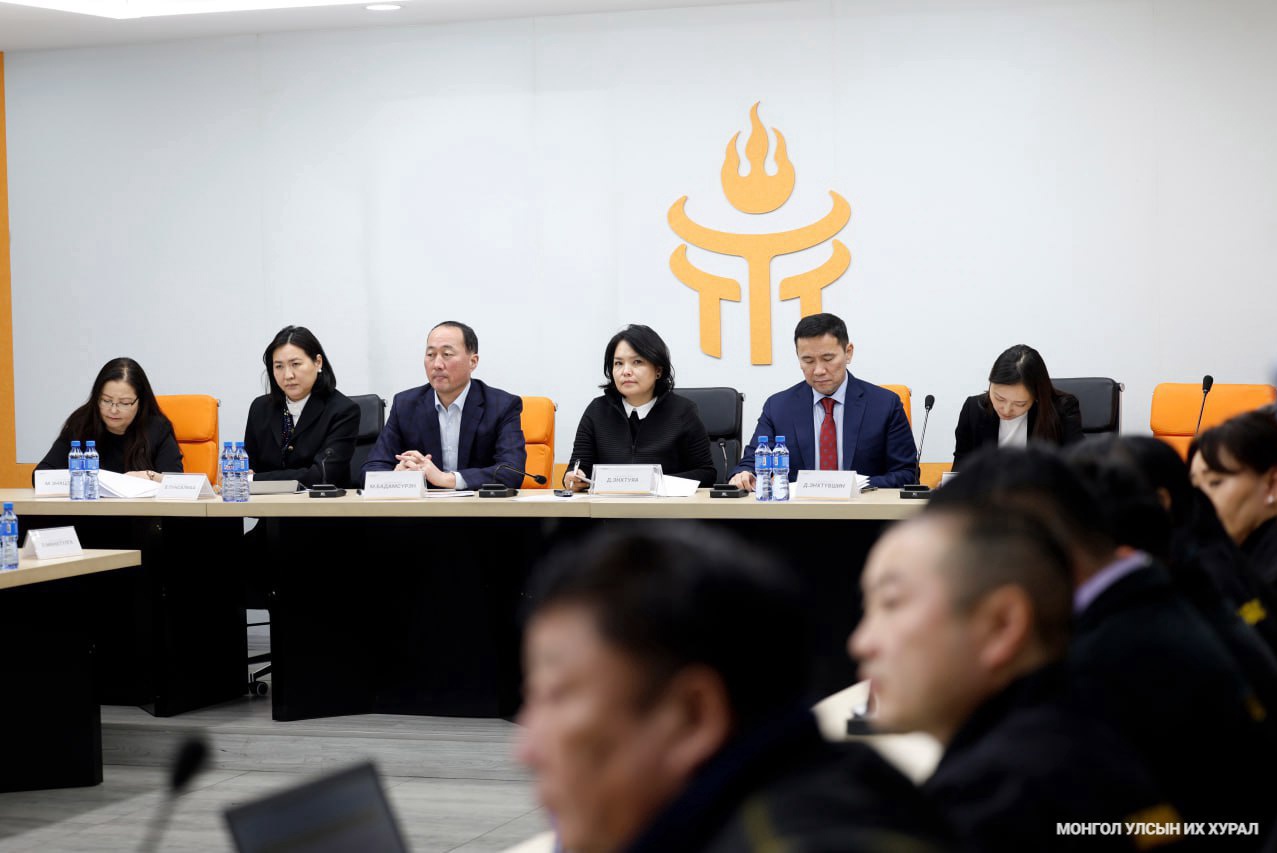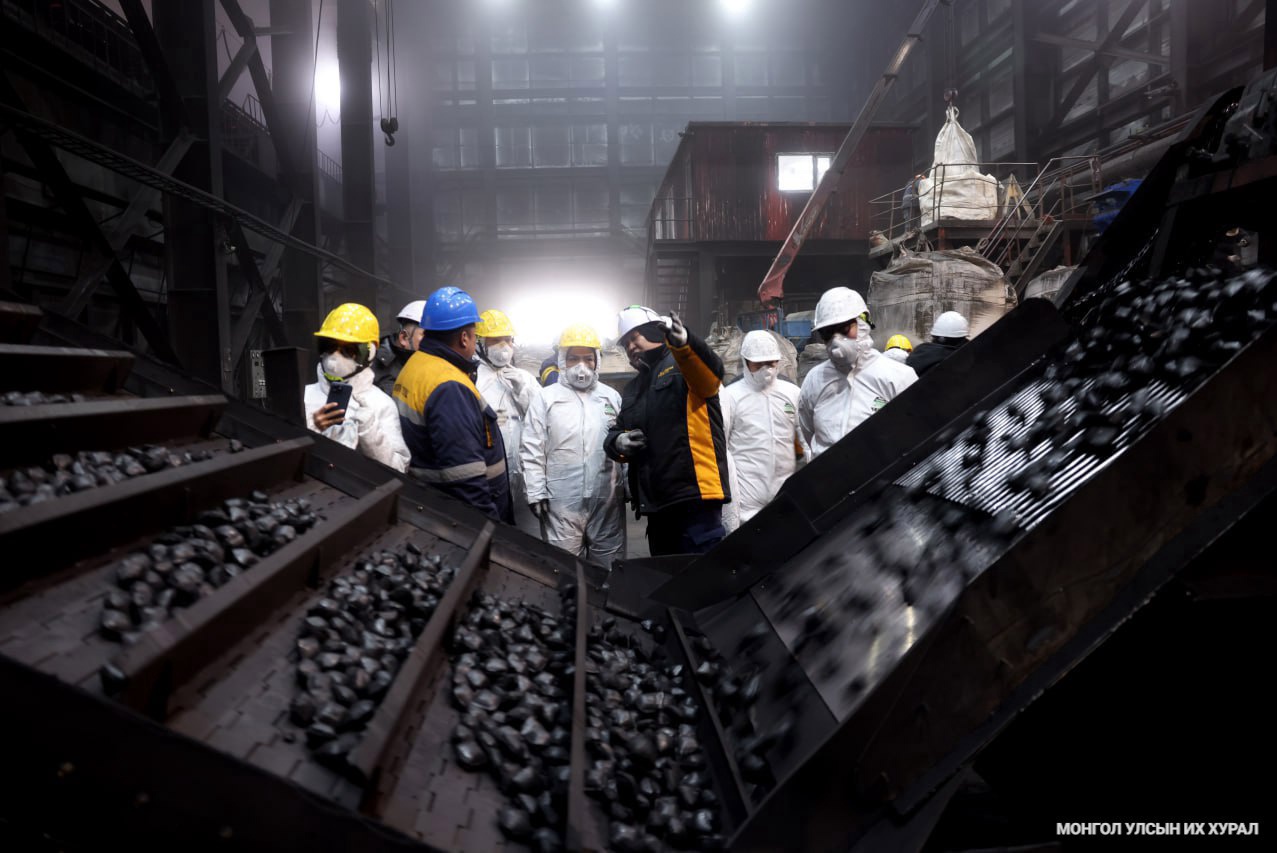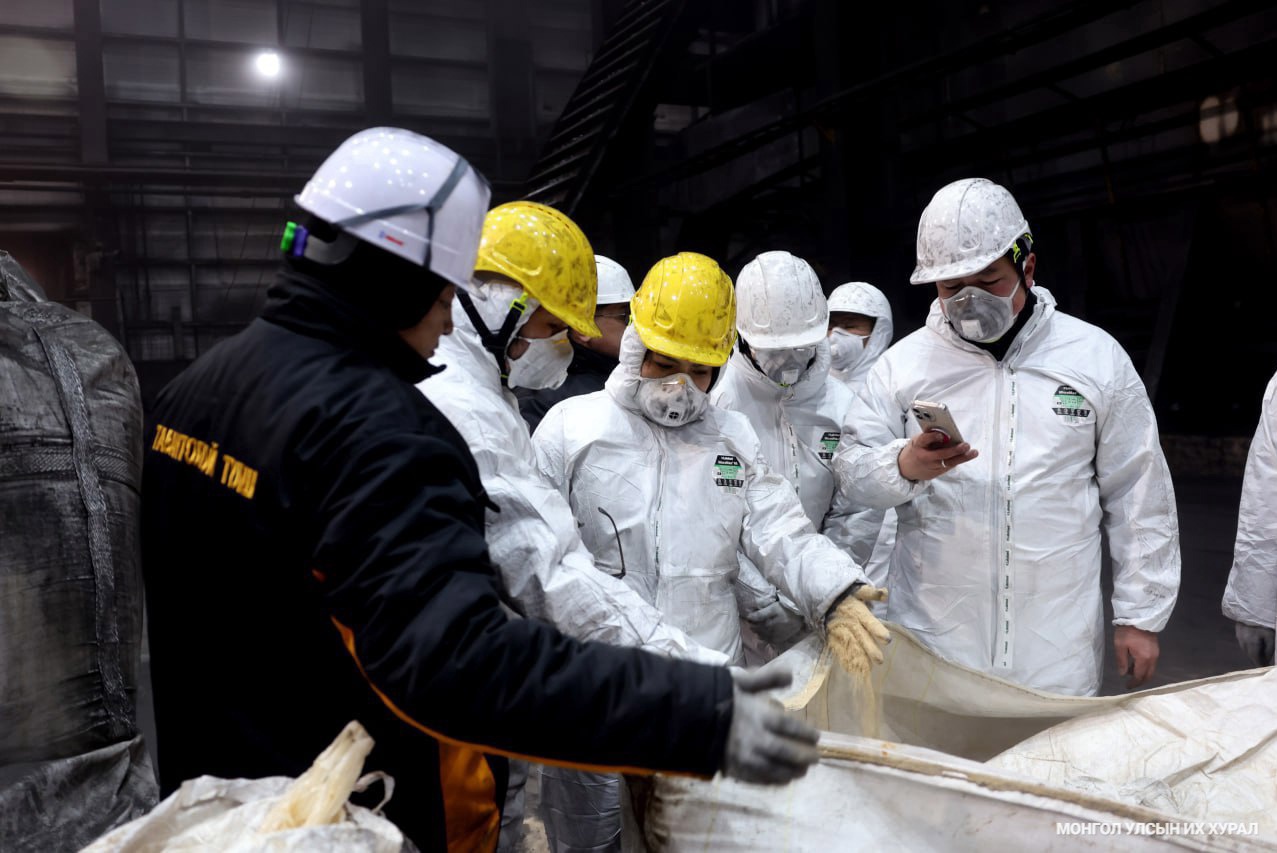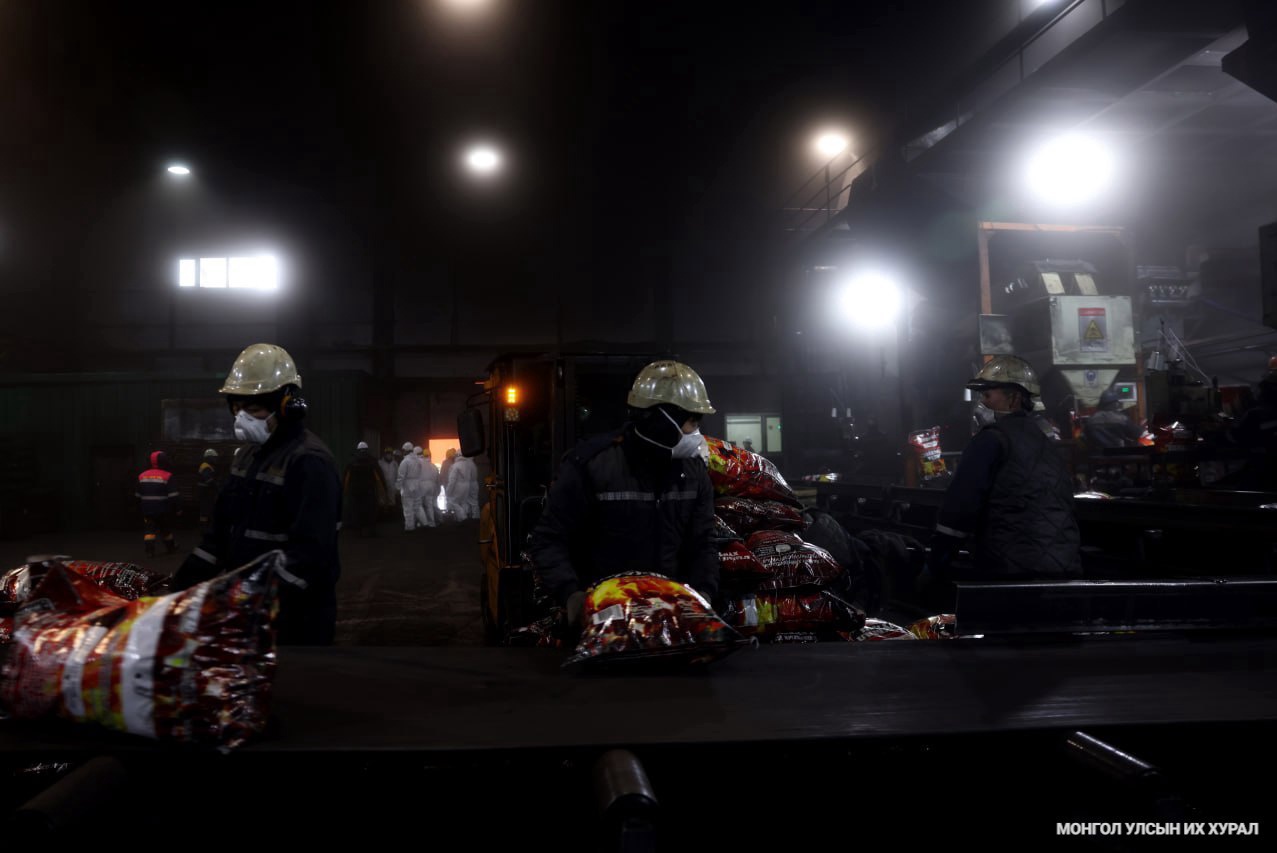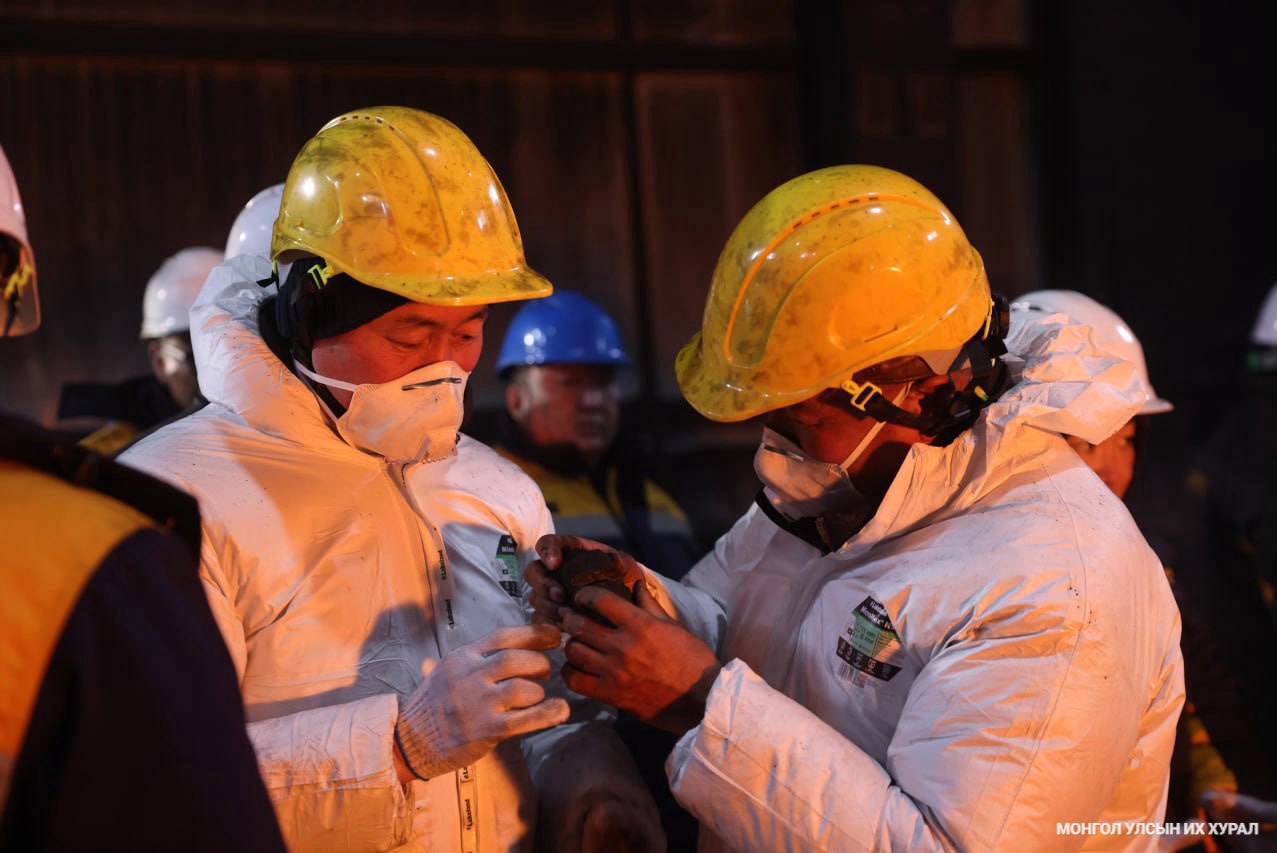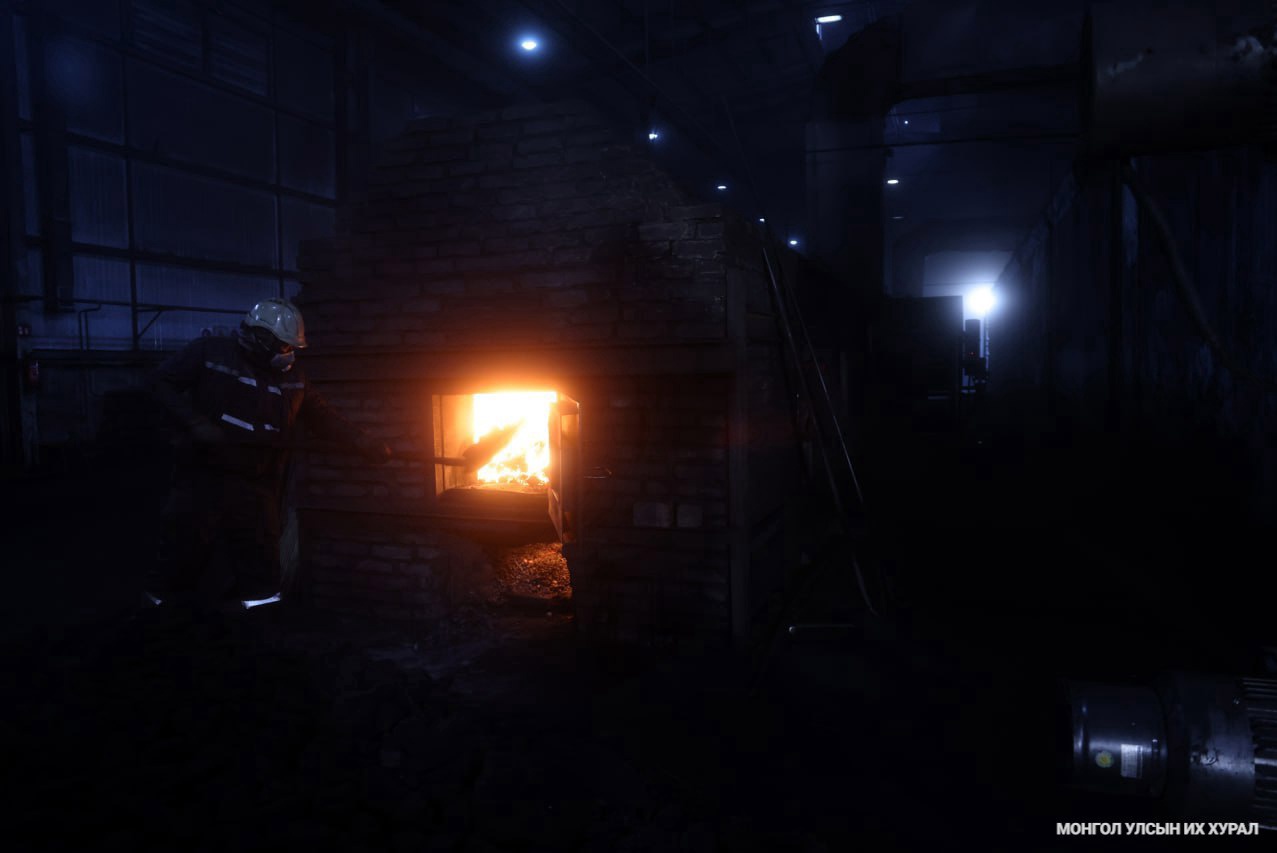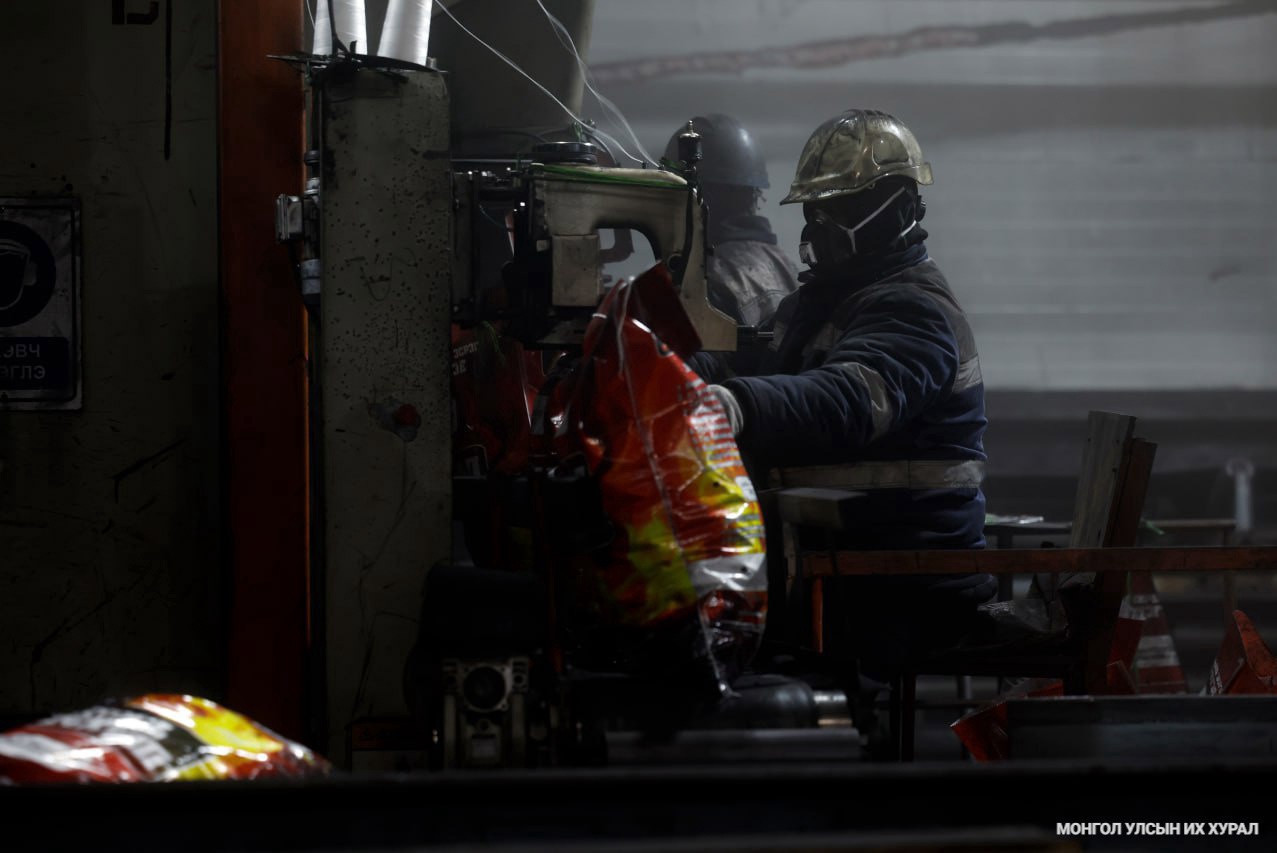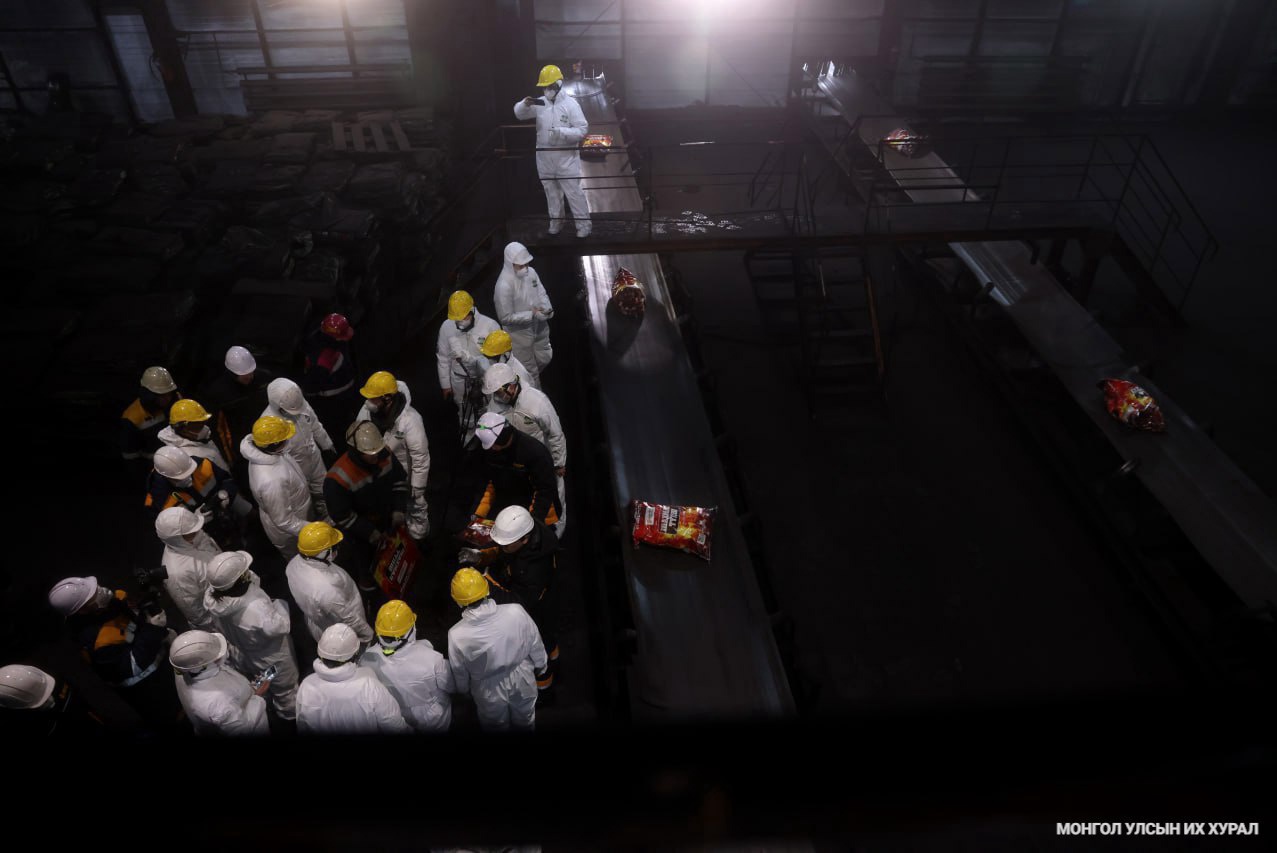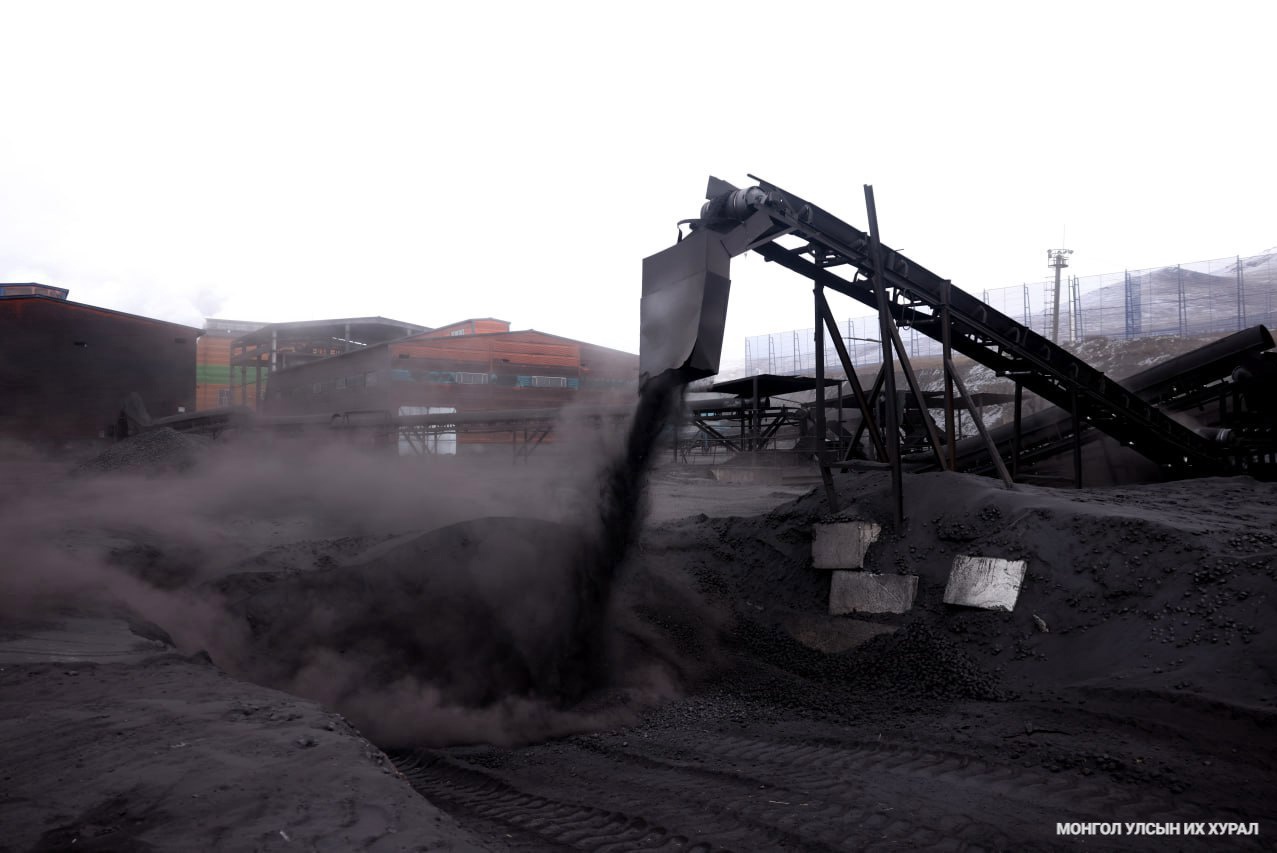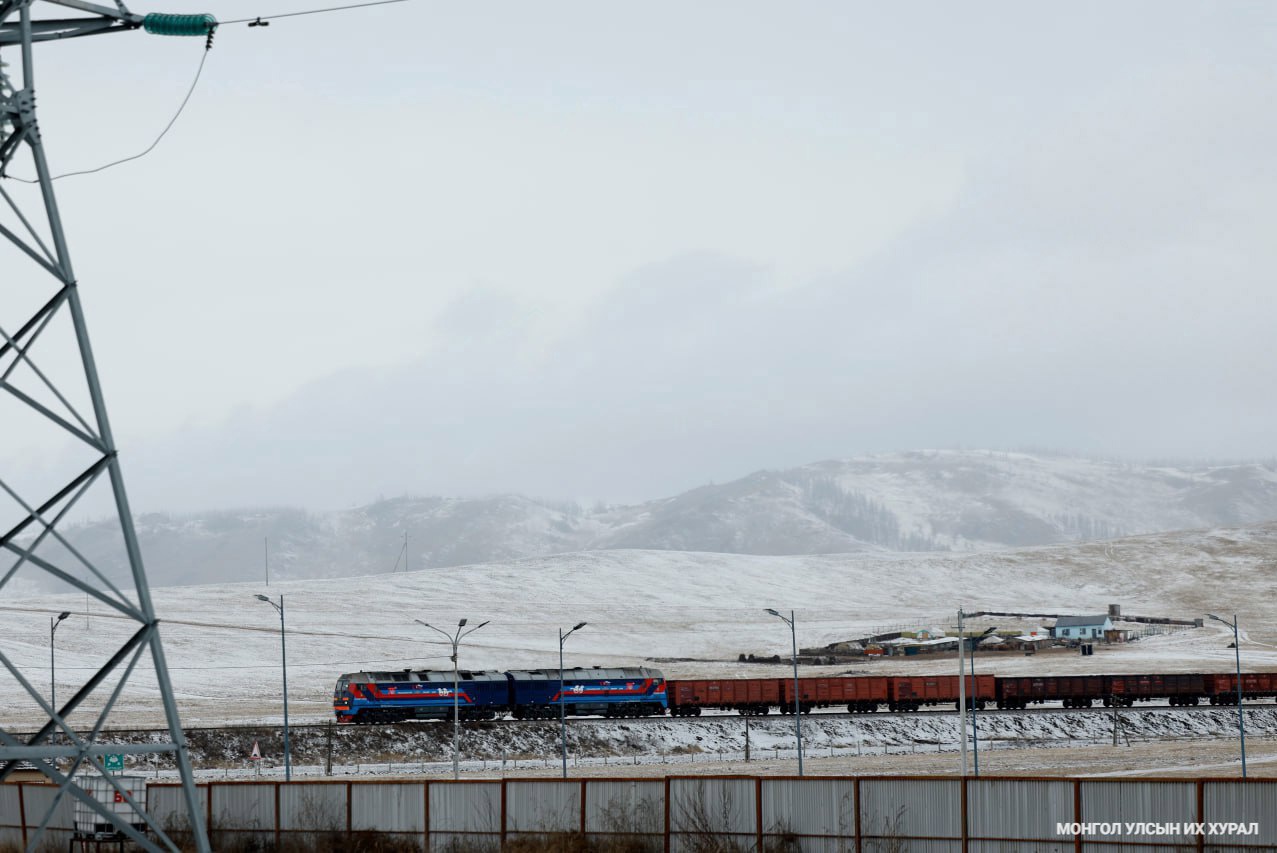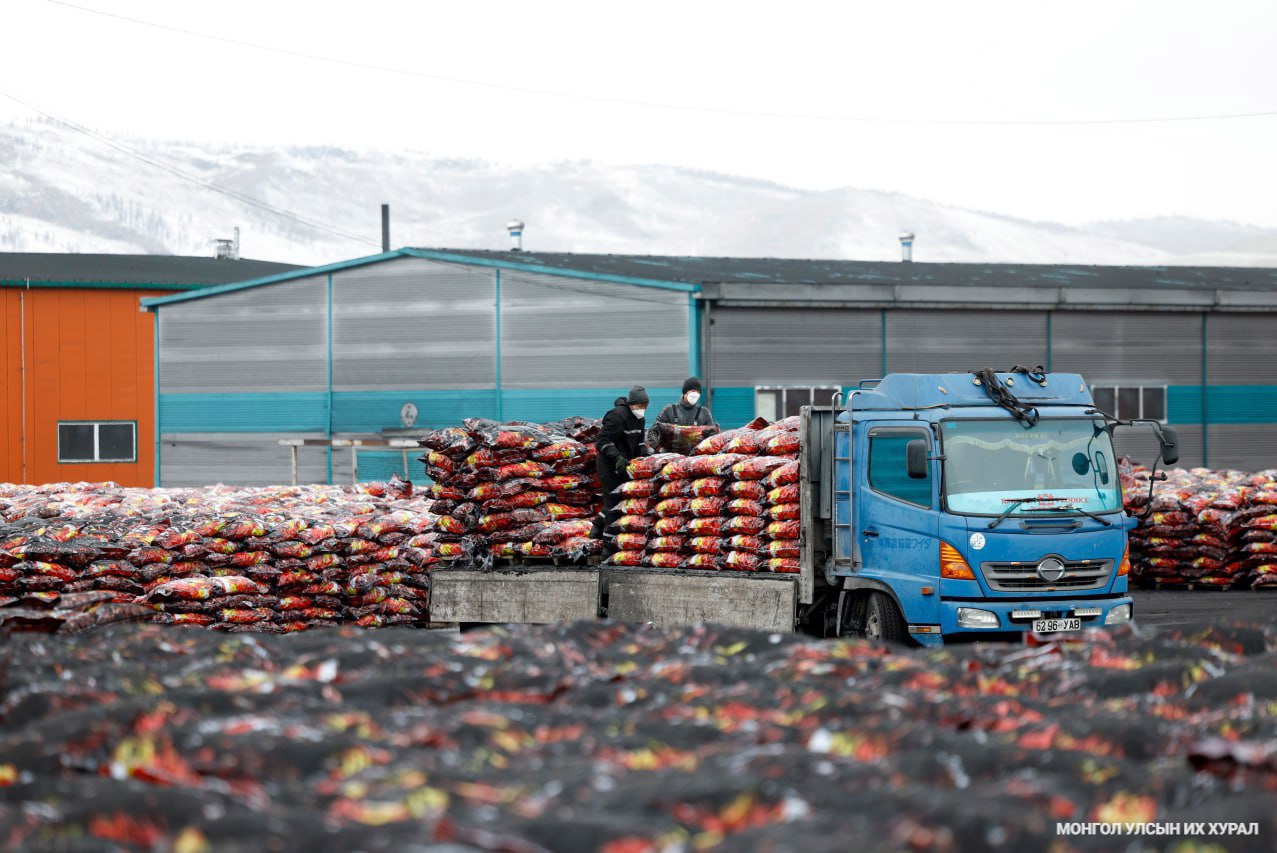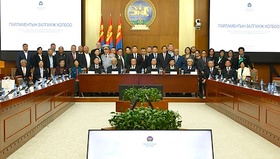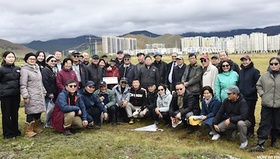Members of the Working Group under the Standing Committee on Industrialization Policy of the State Great Hural visited the operations of “Tavantolgoi Fuel” LLC to review its production and technological processes, carry out inspections, and develop relevant recommendations and draft resolutions. The Working Group is led by MP D. Enkhtuya, who introduced the group’s mandate to examine whether there have been any violations of standards and procedures in the production technology of “Tavantolgoi Fuel” LLC. The 11-member group, including MPs B. Punsalmaa, M. Enhtsetseg, B. Uyanga, D. Enkhtuvshin, M. Badamsuren, and the leader D. Enkhtuya, visited the factory’s operations.
The factory’s CEO Ts. Erdenebayar, Chief Engineer Ts. Altansukh, Head of the Finance and Economics Department A. Batzorigt, and Chief Technologist D. Ulziibat provided an overview of the company’s production, sales, financial status, and technology. The factory receives its primary raw material, middlings (a by-product of processed coal), from the Ukhaa Khudag mine of Energy Resource LLC. The material is delivered by rail at a rate of 4,000 tons per day, crushed, mixed with a binder, moisture-adjusted, compressed, molded, and packaged to create fuel. To improve the quality of its products, the factory needs to replace the raw materials. However, the factory is unable to make this decision independently and is working with the relevant authorities and professional councils to resolve this issue, as stated by CEO Ts. Erdenebayar.
The company’s central and eastern factories produce 75,000 tons of improved fuel per month, selling it at a price five times lower than its cost, according to A. Batzorigt, the Head of the Finance and Economics Department. Although the middlings are provided free of charge by Energy Resource LLC, the transportation costs for these materials have totaled 288.4 billion MNT. The cost of producing 1 ton of improved fuel is 598,900 MNT, which translates to 15,000 MNT per bag, and it is sold for 3,750 MNT per bag. The company’s total costs include 45.1% for raw materials and their transportation, 26.5% for wages, and 6.5% for depreciation.
The middlings from the Ukhaa Khudag mine meet the requirements of the MNS 6226:2011 standard for energy coal, while the manufactured briquettes comply with the MNS 5679:2022 standard for solid fuels, and the binder used in production meets the CS 11-0566:2024 standard. These standards were explained in detail by Chief Technologist D. Ulziibat, who also noted that the technological process has not changed and the composition of raw materials has remained the same.
MP D. Enkhtuya, Leader of the Working Group, inquired why air quality in Ulaanbaatar improved during the early stages of production but deteriorated significantly in 2024, negatively impacting public health and the living environment. In response, D. Ulziibat explained that the increase in the number of vehicles in the city and the permission given to over 140 businesses to burn raw coal have contributed to the worsening air quality. He also added that over 60% of stoves used by households in Ulaanbaatar do not meet quality standards.
MP B. Uyanga noted that, comparing the air quality indicators of the capital and the factory’s production and supply levels, it is likely that the improved fuel has little effect on air pollution. She raised detailed concerns about carbon monoxide emissions and the porosity of the briquettes. MP D. Enkhtuvshin recommended that the factory increase its monitoring of the transportation, storage, and handling of middlings supplied by Energy Resource LLC. He also suggested improving the management of the company’s warehouse and transportation. He stated that while the consumption of briquettes has decreased over the past three years, the increase in air pollution is likely due to other factors. MP M. Enhtsetseg inquired about how the change in the binder material during production affected the quality of the product and asked for a comparison of the raw materials (middlings) and the final product’s characteristics, test results, and updates on the standards. She also raised concerns about the loss of 816.7 billion MNT, and the high cost of the product despite receiving the raw materials for free. MP B. Punsalmaa pointed out the alarming statistics of 10,000 cases of carbon monoxide poisoning annually, with over 100 fatalities, emphasizing the need for stricter control over the production process, including cross-checking and internal laboratory measurements. MP M. Badamsuren stressed the importance of adhering to production technology, standards, and procedures, while also ensuring control over consumer usage and household equipment. He recommended that the company set up mobile laboratories and improve oversight by municipal authorities, as well as implement cross-sectional audits and consulting services in the factory’s operations. He also advised the factory to continuously test, research, and develop its technology at all stages.
With Ulaanbaatar’s air pollution reaching catastrophic levels and being discussed at the National Security Council level, MP D. Enkhtuya, Leader of the Working Group, emphasized the urgent need for “Tavantolgoi Fuel” LLC to place heightened oversight on its product quality and to maintain a state of heightened readiness. She also noted that the Working Group of the Standing Committee on Industrialization Policy would intensify its monitoring activities and promptly issue recommendations. The members of the Working Group visited the 1st, 2nd, and 3rd workshops of the East factory of “Tavantolgoi Fuel” LLC. The working conditions in the factory’s workshops were noted to be difficult, with high levels of dust, and the group recommended researching and implementing a system that would minimize dust and debris by enclosing the production environment.

 Eng
Eng  Монгол
Монгол